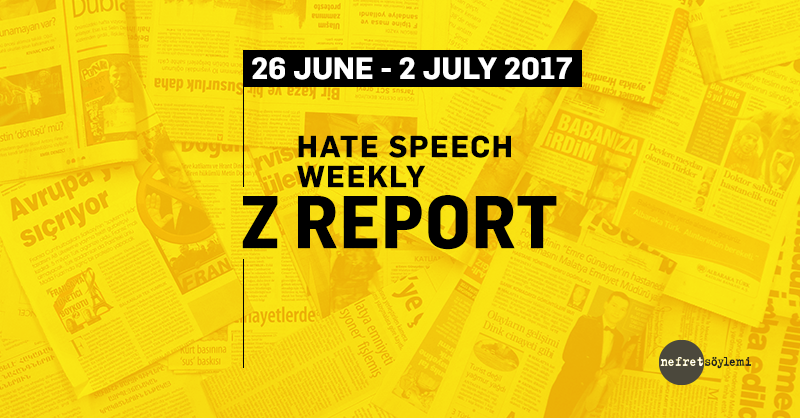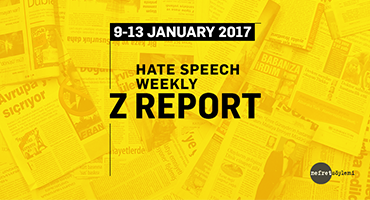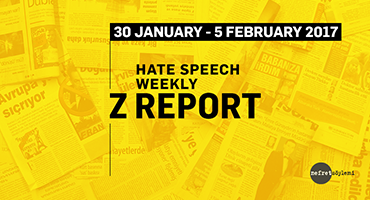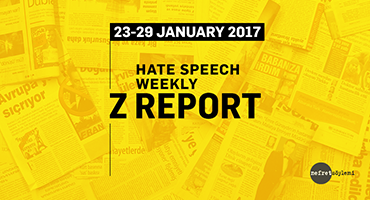Within May 29 - Jun 4, 2017, three news articles that generate hate speech had been selected from print media for the weekly report. You can find these articles that generate hate speech against Kurds, Syrians, Jews and Greeks and the analyses below.1
1.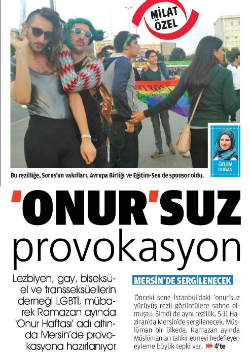
The article in Milat, which was published with the title “'HONOUR'LESS provocation” both on the front page and on the 4th page, insults LGBTI+ people recurrently with the expression “honorless” due to their sexual orientation and gender identities. In the article which targets the Pride Week in Mersin, Ramadan and Islam are highlighted through the frequent use of expressions as “There is a great reaction against the action which aims to insult Muslims in a Muslim country, during Ramadan”. LGBTI+ people who are tenaciously accused of provoking Muslims, are shown as a possible threat to Muslim people. The article, therefore, incites existing prejudices and discrimination against LGBTI+ people and legitimizes the violence they are exposed to. |
2.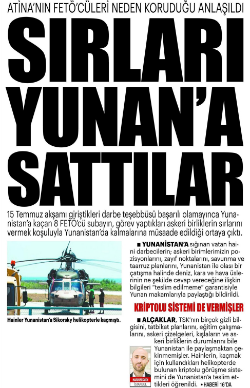
The article which was prepared by Yeni Akit with the title “THEY SOLD THE SECRETS TO THE GREEK” on the front page and “THEY SOLD OUR MILITARY SECRETS TO THE GREEK” on the 16th page, accuses all Greek people by highlighting their national identity, hence, incites the existing prejudices against Greeks. |
3.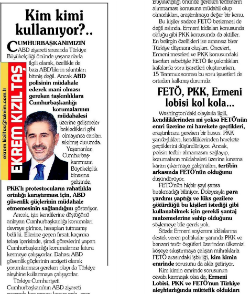
In his article “Who draws on who?”, Ekrem Kızıltaş uses the subhead “FETÖ, PKK and Armenian lobbies arm-in-arm”, therefore, associates the Armenian national identity with terror and incites enmity towards Armenians by labelling them as a possible threat. |
1. Within the scope of the media monitoring work focusing on hate speech, all national newspapers and around 500 local newspapers are monitored based on pre-determined keywords (e.g. Traitor, apostate, refugee, Christian, Jewish, separatist, etc.) via the media monitoring center. While the main focus has been hate speech on the basis of national, ethnic and religious identities; sexist and homophobic discourses are also examined as part of the monitoring work.

